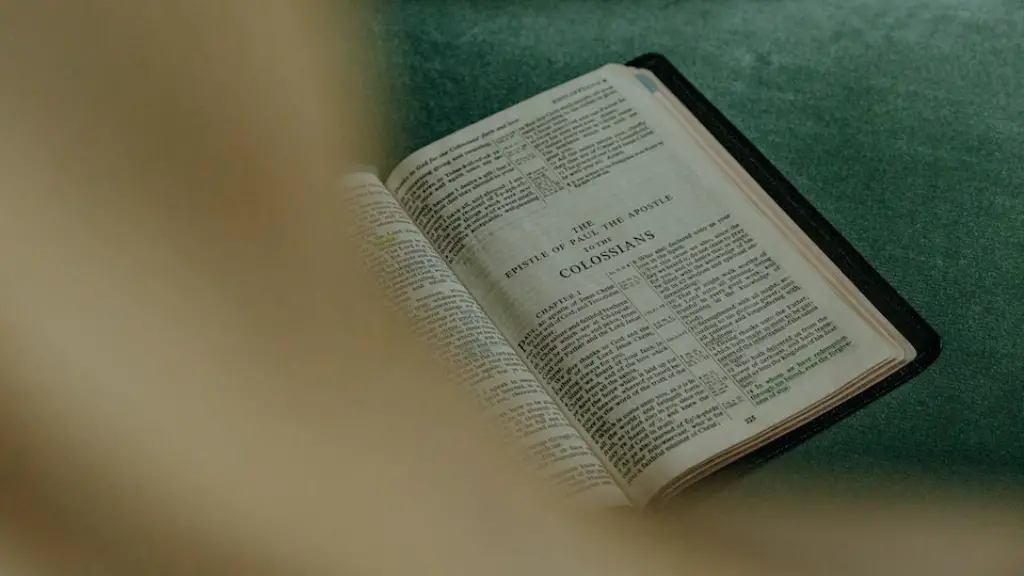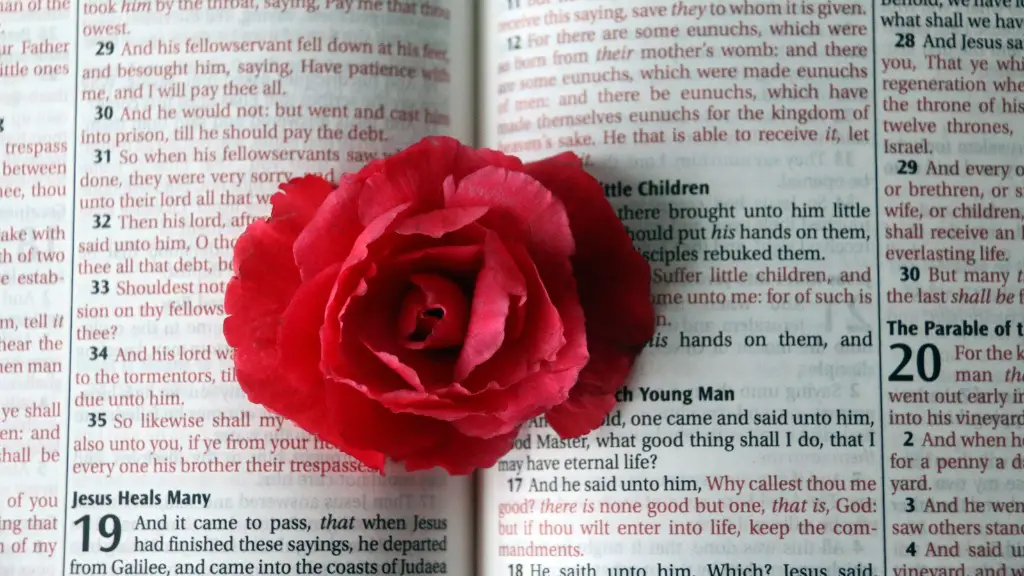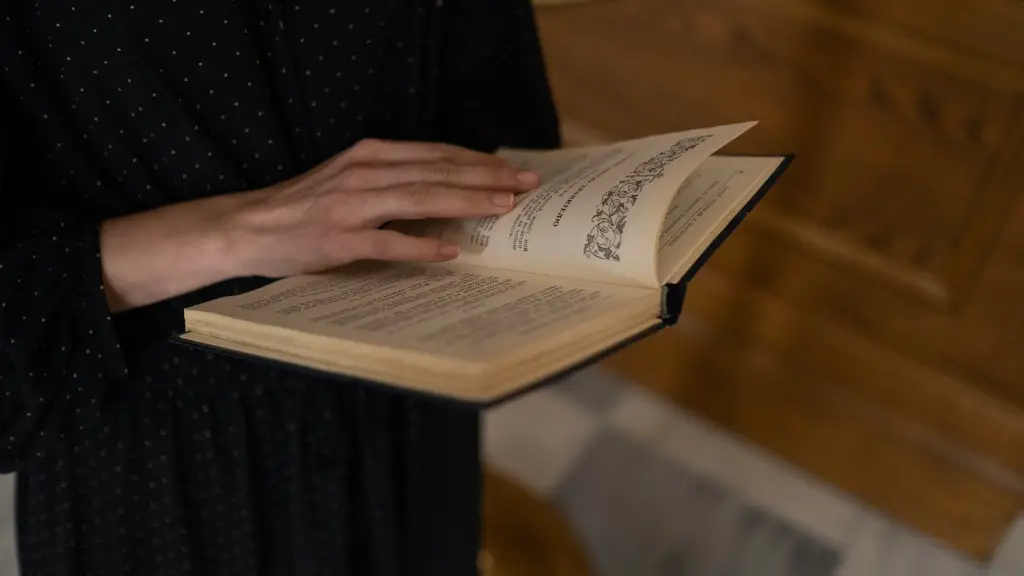Do You Have To Swear On The Bible In Court?
When individuals are called to testify in court, there is a widespread notion that they must swear an oath on the Bible before taking the witness stand. This is a longstanding tradition for many courts in the U.S., but is it actually required? It’s an interesting question as there is no definite answer and it depends on the situation.
The concept of swearing on religious items — specifically, a Bible — dates back to the 13th century, when Christian leaders believed that a person who had broken a sacred promise could be condemned to an eternity of damnation. In the 18th century, it became a popular inclusion in court proceedings, with many courtrooms having Christian chaplains to lead the proceedings.
Today, when testifying in court, many people will find themselves presented with a Bible or other religious text and asked to swear or affirm that their statements are true. However, this is not actually a requirement for most courtrooms. Whether an individual must swear on the Bible depends on the state and the court in question. While some states require an oath on the Bible, others do not require any oath at all.
Recent research has suggested that a significant number of courtrooms in the U.S. are still using Christian-focused materials in their proceedings. For example, a survey produced by the American Bar Association found that 70% of witnesses were asked to swear on Christian-influenced items during court hearings. This has led some to question whether or not judges are following the law.
In essence, it is important to note that swearing on a Bible before taking the witness stand is not legally required in every court in the U.S. In fact, many courts allow individuals to choose whether they want to swear on a Bible or make a formal statement without a religious connection. The choice of option usually lies solely with the witness.
What’s more, constitutional law prohibits courts from forcing individuals to make any form of religious oath or statement. If someone does not wish to swear on a Bible, they can simply explain to the court that making such a religious oath violates their beliefs and that they would prefer to make a secular oath. Individuals also have the legal right to request a non-religious alternative for taking the oath.
Exploring Different Religious Beliefs
It is important to remember that justices and judges have an obligation to ensure fair and impartial proceedings in courtrooms. This means that, in regards to religious objects, the court should make allowances for individuals with different beliefs. For example, courts should be willing to provide materials such as a Torah or the Quran for taking an oath to accommodate those of different religious beliefs.
Similarly, if an individual is an atheist or non-religious, they should not be made to feel uncomfortable or required to swear on a religious item before giving testimony. Fortunately, in many states throughout the U.S. it is completely up to the individual if they wish to take the oath on a religious item or not.
At the same time, the court should also not favor one religion over another. This means that a court should offer different items from multiple religions to witnesses — rather than just a Bible — to show fairness and impartiality. These could include a Torah, a copy of the Quran, religious symbols, and other such items.
Ultimately, it is thought that courts should not be influencing the religious beliefs of witnesses, whatever form those beliefs take. Even if a court does require an oath, an individual should have the choice to either swear on a Bible or any other religious item — or even a secular item — that they prefer.
The Significance of Taking An Oath
It is also important to consider why witnesses are required to take an oath in the first place. When a witness takes an oath, it means that they are swearing to tell the truth in their testimony while under the court’s jurisdiction. This means that any false statements could lead to criminal or civil penalties.
Ultimately, taking an oath adds weight to the witness’ testimony, as it is seen as a solemn declaration of truth. This will normally lead to more accurate testimony, as most people would not dare break the oath. Additionally, some states require that an oath be taken before a witness’ testimony can be accepted as evidence.
This requirement is necessary to prevent people from making false claims and hindering the judicial process.
Penalties for Lying
In cases where a witness has lied during their testimony, the court may impose penalties. These can range from fines to jail time, depending on the severity of the situation. Interestingly, some states follow the Bible’s advice and impose a harsher punishment on those found guilty of perjury. This means that a person who has broken an oath on the Bible may face more serious consequences than someone who has sworn an oath on a secular item or without taking an oath at all.
To ensure an impartial legal system, however, it is often necessary for judges and justices to take extra steps when dealing with witnesses of different religious views. This could mean offering different religious items or simply saying that a witness is not required to swear on a Bible before giving their evidence.
Implications of Not Following the Law
Noncompliance with the law in regards to religious oaths can have a range of implications for courts and witnesses. Judges and justices should be aware of the legal status in their own courtrooms, as forcing witnesses to swear on the Bible or any other religious item before giving testimony could potentially be seen as unconstitutional or in violation of the law. This could lead to further complications down the line.
What’s more, if a court fails to offer an alternative to a religious oath, it could lead to problems for the witness. If a witness has a strong religious belief and is made to swear on a religious item, it may go against their values, resulting in a feeling of inequality. It could also harm the relationship between the witness and the court as well as lead to a potential miscarriage of justice.
This means that justices and judges should take extra steps to ensure impartial proceedings and respect for different religious beliefs. For example, courts can offer multiple religious oaths from different religions and should let witnesses know that they are not required to swear on a Bible.
The Impacts of Taking an Oath
Taking an oath — regardless of the item being used — makes proceedings in court much more serious. This is because witnesses are legally bound by an oath and any false statements can lead to criminal penalties. This means that witnesses are expected to take their statements seriously and not to lie or mislead the court.
The implication of taking an oath is also very important in regards to witness protection laws. In certain cases, where a witness is testifying against dangerous or intimidating individuals, it may be necessary for extra security to be put in place. This could include providing the witness with a safe house, for example.
Finally, it is important to consider that, in certain situations, witnesses may not feel comfortable in court. This could be due to any number of factors and it could be made worse if a judge forces an individual to swear on a religious item that goes against his or her beliefs. Thus, it is crucial for courtrooms to show respect for all beliefs and provide a safe and reassuring environment for witnesses.
Changing Perspectives on Religious Oaths
Over time, views on taking a religious oath before giving testimony in court have shifted significantly. The requirements and regulations surrounding witness oaths vary greatly between courtrooms and states throughout the U.S. — however, the general trend is that courts are becoming increasingly more open to non-religious oath taking, as long as the witness being questioned is properly informed.
The increasingly progressive views on court proceedings have led to more futuristic thinking and more focus on creating an equitable courtroom environment. This means that many courtrooms now offer multiple potential oaths for witnesses to choose from, rather than just the traditional religious oath on the Bible. In some cases, this may involve offering various religious texts or symbols, as well as secular items.
At the same time, it is important to note that, while making religious oaths optional is important, some courts also handle witness oaths differently. For example, in some states, courts may require that a witness promise to tell the truth by either swearing on a Bible or by simply stating the words of the oath without any specific item.
Ultimately, it is important to remember that most courts are now focused on providing an environment which allows individuals to give testimony without feeling uncomfortable or promoting one religion over another. By recognizing the religious rights of individuals and respecting different beliefs, courts are able to promote an equitable and impartial environment for everyone involved.
The Influence of Culture and Religion
It also important to consider that, in some cases, cultural or religious differences can contribute to a witness feeling uncomfortable when appearing in court. For example, certain religious or cultural practices could lead a witness to feel embarrassed or pressured when asked to swear on a religious item, even if their beliefs are not in alignment with that religious item. In such cases, it is important for justices and judges to recognize these cultural or religious differences and be understanding.
At the same time, swearing on an item can also serve as a reminder of one’s obligations and beliefs. The fact that a witness is risking eternal punishment or condemnation makes them much more likely to give truthful testimony. This could lead to an improved judicial system which is based on honesty and integrity.
It is also important to consider that, in some cultures, a religious oath is an important part of the judicial process. For example, in some religions, lying is considered a sin and witnesses may choose to swear on religious items to remind themselves that they must tell the truth.
Ultimately, swearing on a religious item can be both a cultural and religious obligation — depending on the situation. This means that it is important for courtrooms to be aware of different cultural and religious norms, as well as making alternative options available to those who are uncomfortable or unable to take an oath on a religious item.
Final Thoughts
Swearing on a Bible or other religious items before giving testimony in court is an old tradition that is still used in many courtrooms in the U.S. today. While it may be a requirement in some states, in most cases it is not actually legally required. This means that witnesses have the option to choose whether or not they want to swear on the Bible or take a different form of oath.
What’s more, it is important for courtrooms to show respect for different religious beliefs and offer multiple alternative oaths for witnesses to take. This could include religious symbols and texts from multiple faiths, as well as secular items. In this way, witnesses of all beliefs can give evidence in court without feeling pressured or uncomfortable.





